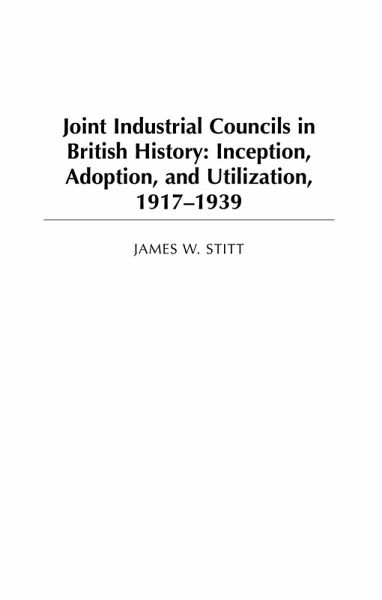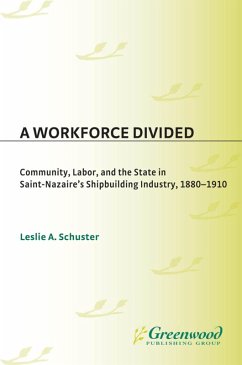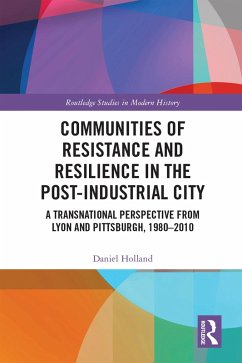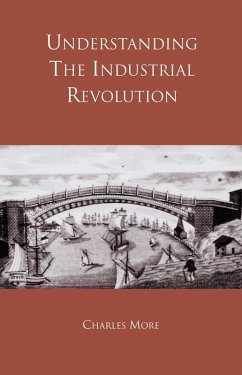
Joint Industrial Councils in British History (eBook, PDF)
Inception, Adoption, and Utilization, 1917-1939
Versandkostenfrei!
Sofort per Download lieferbar
58,95 €
inkl. MwSt.
Weitere Ausgaben:

PAYBACK Punkte
29 °P sammeln!
Joint Industrial Councils: Inception, Adoption, and Utilization, 1917-1939 is a study of how a WWI proposal for permanent improvement in labor-management relations came about, why the target industries ignored it, and how it found a purpose in the second-tier industries for which it was not originally intended. The press, social reformers, academics, and various business interests touted JICs as the beginning of worker control of industry, while skilled trade unions saw them as a plot to harm workers' interests. Their eventual modest use was directed to needs within individual industrial enter...
Joint Industrial Councils: Inception, Adoption, and Utilization, 1917-1939 is a study of how a WWI proposal for permanent improvement in labor-management relations came about, why the target industries ignored it, and how it found a purpose in the second-tier industries for which it was not originally intended. The press, social reformers, academics, and various business interests touted JICs as the beginning of worker control of industry, while skilled trade unions saw them as a plot to harm workers' interests. Their eventual modest use was directed to needs within individual industrial enterprises and not to more global missions, such as the remaking of British industry in general. But successful JICs undertook serious issues that management and unions needed to address, such as wage rates, retirement plans for workers, and safety-related concerns. Moreover, the level of labor-management understanding in JIC industries improved to the point that these industries suffered no strikes in the inter-war period; the conditions of employment for the workers improved; and productivity increased.













